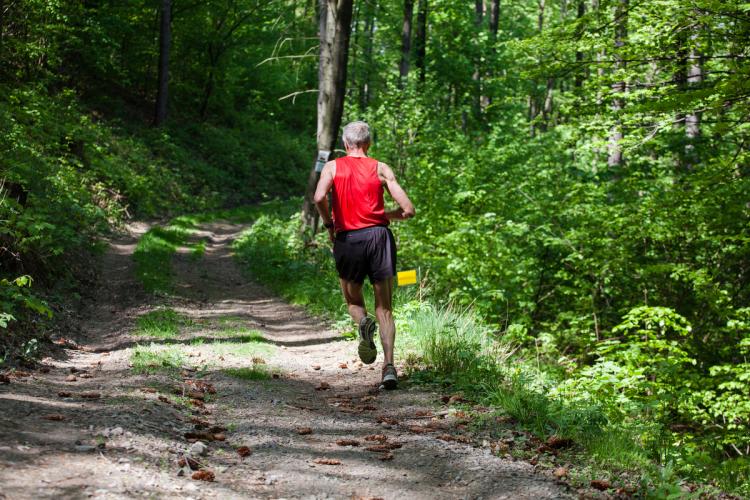Drop Dead at 100
Drop dead in your 100s, playing some sport. This is our goal for our patients. If they can stay fit, recover from illness and injury, and keep their eye on the ball; dropping dead in action at 100+ is a great goal. Here is how to get there and how not to:

1) Don’t get injured. Injuries that damage the joints often lead to arthritis if the damaged tissues are not repaired or replaced. Avoiding injuries as you age is not as hard as it was when you were younger. My older athletes pick their sports with care. While they lean more towards swimming, cycling, and running; even those who play soccer try to avoid making the mistakes that can lead to injuries. My golfers and tennis players tend to be more thoughtful about the mechanics of their swings.
All my older athletes seem to choose their times to exercise based on brain power, rather than on rash, adrenaline-infused decisions. They are mindful while they play. Most of my long distance women runners began running in their 30s and 40s, and some as late as their 60s. They don’t suffer from the overuse injuries my younger males do, in part because they manage their runs, titrating their efforts to match their health. Not getting injured doesn’t mean not playing—it means playing smart.
2) Repair and replace what does get injured. The old days of taking out torn meniscus cartilages, living with torn rotator cuffs in the shoulder, injecting cortisone and toughing it out are over. As soon as key tissues are torn; repair, regenerate or replace them. For example, there is overwhelming data that simply repairing rather than resecting a torn meniscus cartilage dramatically decreases the chance of arthritis in the knee. For arthritic knees, resurfacing only the part that is painful is an outpatient procedure that can return people to most sports in 2 months.
3) Train for life. Falling is one of the main killers of older people. Falls often occur from poor balance. Balance and the mind/body connection, called proprioception, are rapidly lost after an injury and lost slowly with aging. But they are completely trainable. Standing on one leg with your eyes closed or on a pillow is an easy way to train balance every day.
4) Teamwork. My happiest older athletes don’t just hit the gym solo, they play with others. Team sports build the camaraderie that we all remember from high school and college, but often lose in our working years. Master’s leagues are the easiest sport communities to identify and join. Running partners, rowing clubs, hiking groups, and sailing clubs all inspire the “group think” that leads to long-term sports participation.
5) Eat like you plan to live forever. Optimizing your weight usually means getting lighter in your 50s-70s and getting more muscular in your 70s-100s. Since everyone has unique issues with metabolism, kidney function, and GI tolerance, a smart sports nutritionist can customize your diet to your output. In general, our older athletes need more protein. Ingesting protein in the hour just after exercise leads to the best utilization of the nutrient for muscle building. Obtaining a serum albumin level and a testosterone level may help guide the program for men and for women. I don’t have any 80-100 year-olds who are too muscular.
6) Water, water everywhere. Both to drink and to train in. Most people are perpetually dehydrated from sleep, caffeine, alcohol, and mouth breathing. Increasing water intake hydrates all the cells in the body, including the ones in your brain. Have a tall glass of water before even lifting a fork, and place a glass on your desk all day. The need for frequent trips to the bathroom often discourages my older athletes from drinking enough—but the tradeoff is worth it, from both a health and a fitness point of view.
But don’t just drink water, immerse yourself in it. Everyone, every joint, every injury feels better in a warm pool. You don’t have to be a swimmer. Just walking laps in the pool, in waist- to chest-deep water, is a great cardiovascular workout. Try walking 20 laps. Time yourself, and try to walk a little faster each day. Set a goal for your 100th birthday of walking for 10 minutes in the pool, twice a day.
So, drop dead in your 100s—playing a sport, and loving life.
